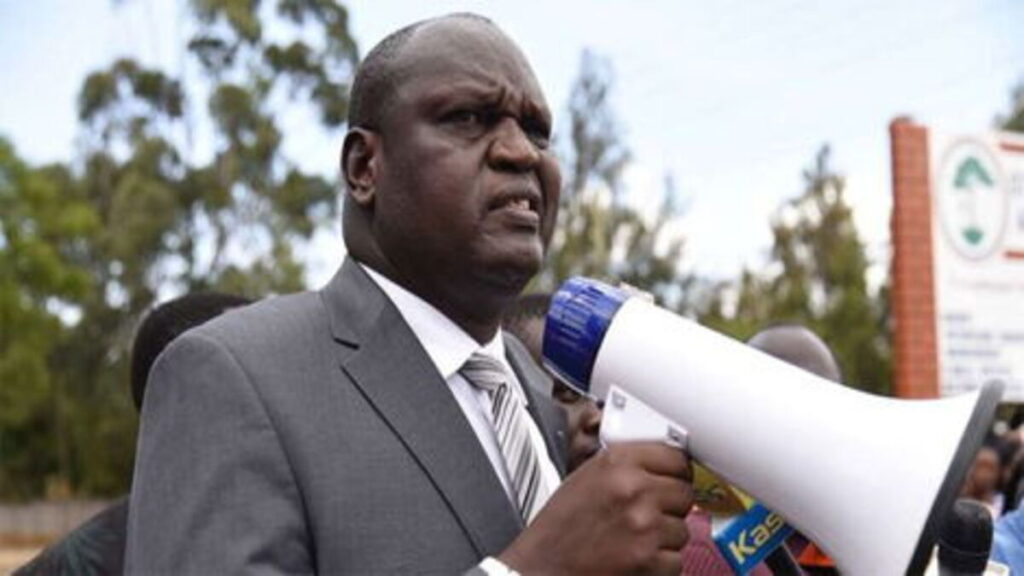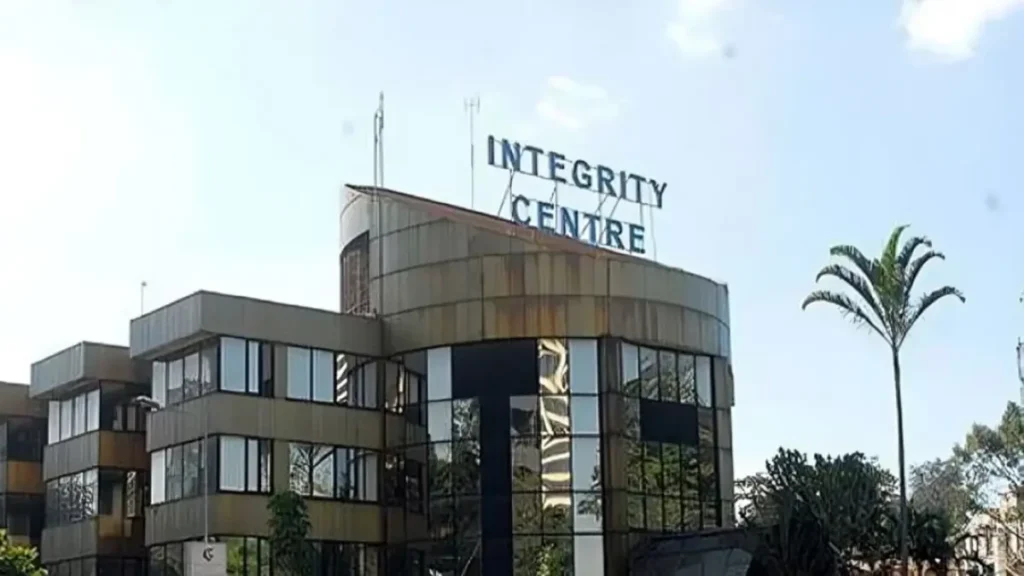Three senior officials from Moi University have recorded statements with anti-corruption investigators over a KSh 2 billion scandal. The probe targets alleged financial mismanagement and corruption at the institution.
The Ethics and Anti-Corruption Commission (EACC) has launched an extensive investigation. They are examining claims of procurement law violations and fund misappropriation.

Moi university vice Chancellor Isaac Kosgey. Courtesy photo
Vice Chancellor Isaac Kosgey appeared at the EACC’s Eldoret offices. He provided details about the alleged financial malpractices under investigation.
The Commission seeks answers about suspicious financial transactions. These transactions occurred during a period of significant financial distress at the university.
Furthermore, the investigation reveals a deeper crisis at the institution. The university currently faces an overwhelming debt exceeding KSh 8 billion.
This financial crisis has severely impacted university operations. Staff members have gone without salaries for extended periods.
Consequently, the situation triggered a nationwide strike by university employees. Workers demanded immediate payment of their salary arrears.

The EACC investigation has uncovered various concerning practices. Investigators found evidence of improper procurement processes across multiple departments.
Sources close to the investigation highlight systematic fund misappropriation. The officials allegedly used sophisticated methods to divert university resources.
The Commission’s preliminary findings suggest widespread financial misconduct. These activities have significantly contributed to the university’s current financial crisis.
Moreover, the investigation reveals a pattern of financial mismanagement. This pattern spans several years of university operations.
The probe focuses on specific procurement irregularities. Officials allegedly bypassed established procedures to award contracts improperly.
Additionally, investigators are examining suspicious payment patterns. These patterns suggest deliberate attempts to circumvent financial controls.
The university’s financial crisis has affected academic programs. Many departments struggle to maintain basic operations due to funding shortages.
Staff morale has hit an all-time low. Many employees face significant hardships due to delayed salary payments.
The EACC has promised a thorough investigation. They aim to identify all individuals involved in the alleged corruption scheme.
This scandal represents a significant challenge for Moi University. It threatens the institution’s reputation and operational stability.
Local leaders have expressed concern about the situation. They demand swift action to address the financial mismanagement issues.
The university’s governing council has pledged full cooperation. They support efforts to restore financial accountability at the institution.
Students have also felt the impact of this financial crisis. Many face disruptions in their academic programs due to resource constraints.
The investigation has broader implications for Kenya’s education sector. It highlights the need for stronger financial controls in public universities.
Other universities are watching this case closely. The outcome could influence financial management practices across the sector.
The EACC has expanded its investigation scope. They now examine similar patterns in other public educational institutions.
Educational experts call for systemic reforms. They suggest implementing stricter financial monitoring systems in public universities.
The Ministry of Education has taken notice of the situation. They promise to support efforts to restore financial stability at Moi University.
This case exemplifies challenges facing public institutions in Kenya. It demonstrates the need for enhanced accountability measures.
As the investigation continues, more details may emerge. The EACC promises to make its findings public once complete.
The case serves as a warning to other institutional leaders. It shows the consequences of poor financial management practices.
The university community awaits concrete solutions. They hope for measures to prevent similar incidents in the future.



















